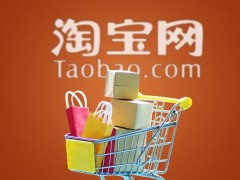What electronic products are there in Russia?
俄罗斯国内和国外跨境平台的热门产品品类有:电子和家电、服装鞋类、食品、家具和家居、美容健康5大类。
海外电商占俄罗斯整个电商的20%。海外三大电商主要为AliExpress,eBay,Amozon。速卖通在俄罗斯的业务主要有服装、鞋子、配饰、内衣、电子产品等。
速卖通俄罗斯买家的年龄层分布主要是20-40岁间的高学历年轻人。月收入大概在2.9万卢布(5800RMB左右),这类是莫斯科低收入,其他地区中等收入人群,98%人用来消费,爱旅游特别是海滩。
俄罗斯人选择速卖通主要原因是价格便宜,品类丰富,朋友推荐说速卖通是最要的途径。对于一些不下单的买家,主要原因是对速卖通的信赖度低,语言问题和物流问题以及商品的质量问题。
由于俄罗斯企业对电子商务的重要性认识不足,在电子支付上存在困难,俄罗斯人电子支付的意愿较低,对网上支付的安全性持怀疑态度。如果想做好俄罗斯市场,就必须要把支付和物流提上去。
Professional answer
The popular product categories of domestic and foreign cross-border platforms in Russia are: electronics and home appliances, clothing and shoes, food, furniture and home furnishings, and beauty and health.
Overseas e-commerce accounts for 20% of the entire e-commerce in Russia. The three major overseas e-commerce companies are AliExpress, eBay, and Amozon. AliExpress's business in Russia mainly includes clothing, shoes, accessories, underwear, electronic products, etc.
The age distribution of Russian buyers on AliExpress is mainly young people with high education between 20 and 40 years old. The monthly income is about 29,000 rubles (about 5,800 RMB). This type of people is low-income in Moscow and middle-income in other regions. 98% of people spend money and love traveling, especially the beach.
The main reason why Russians choose AliExpress is that it is cheap and rich in categories. Friends recommend that AliExpress is the best way. For some buyers who do not place orders, the main reasons are low trust in AliExpress, language problems, logistics problems, and product quality problems.
Since Russian companies do not fully understand the importance of e-commerce, they have difficulties with electronic payments. Russians are less willing to make electronic payments and are skeptical about the security of online payments. If you want to do well in the Russian market, you must improve payment and logistics.
Similar Q&A
recommend How to get the first order from a new AliExpress store?
E-c News Continuously pushing e-commerce knowledge to you








Latest Q&A More
-
Do I need a trademark to open a franchise store on Pinduoduo to sell books?
#Pinduoduo#
-
How to withdraw from a Pinduoduo store
#Pinduoduo#
-
How to withdraw from Pinduoduo merchants
#Pinduoduo#
-
How to pay fees when closing a Pinduoduo store
#Pinduoduo#
-
How to withdraw from Pinduoduo
#Pinduoduo#
-
Which store on Pinduoduo is authentic?
#Pinduoduo#
-
Which stores on Pinduoduo can buy genuine products?
#Pinduoduo#
-
How to check the store under Pinduoduo
#Pinduoduo#
-
How to receive Pinduoduo online game products
#Pinduoduo#
-
How to sell the electronic version on Pinduoduo
#Pinduoduo#
E-c News 2026-02-13 01:50:28

- African netizens use China Africa cross-border e-commerce platform for online shopping
- how is the new seller of cross-border e-commerce doing?
- how can cross-border e-commerce Amazon sell on Amazon platform without goods?
- Amazon store opening process and cost analysis!
- Amazon plans to expand its pharmacy business on a large scale and will add same day delivery service
